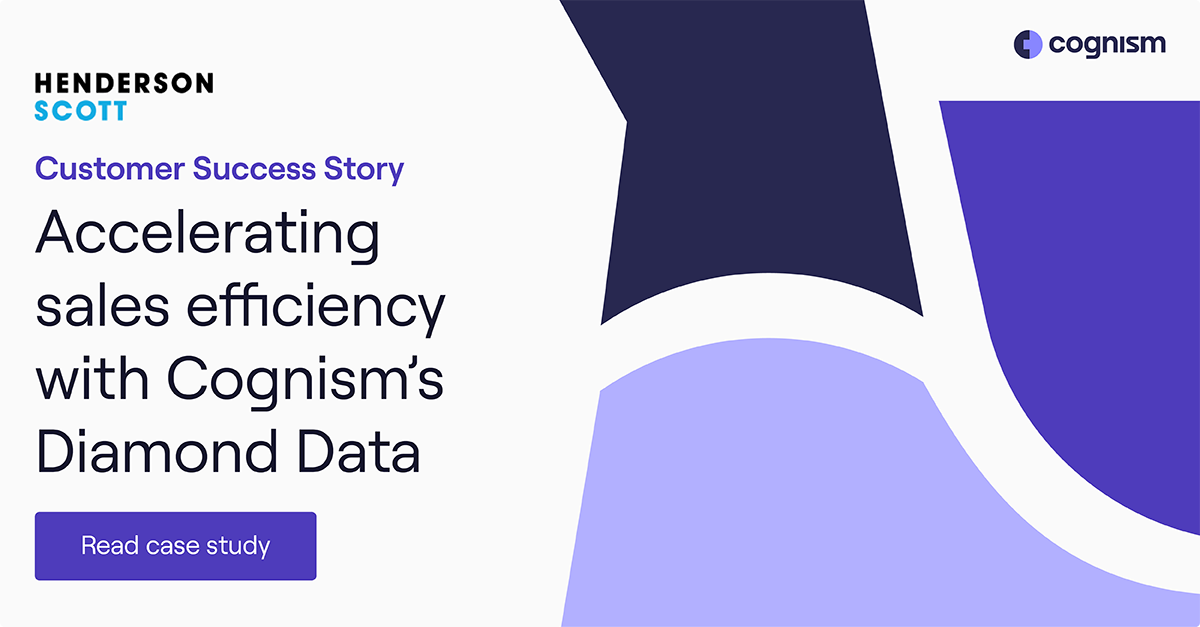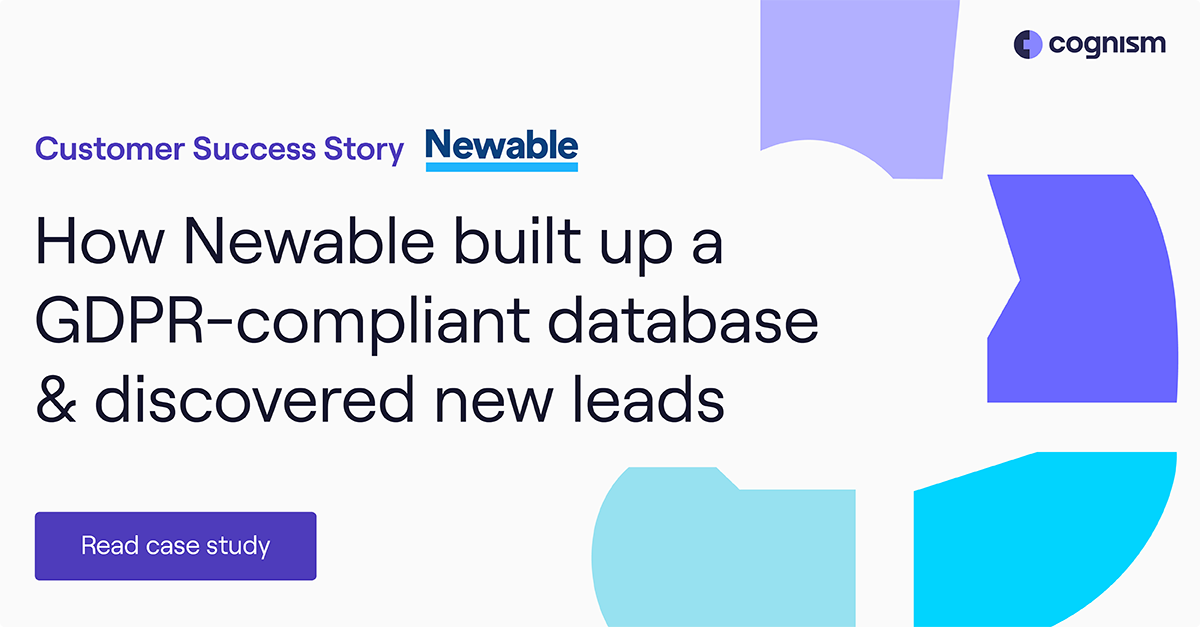Compliant-first data
Our data collection and processing practices adhere to GDPR and CCPA guidelines, assisting in safeguarding your business from non-compliance risks.
Cognism makes your safety our business:
- Our ISO27001 and SOC 2 Type 2 compliance demonstrates our commitment to security, availability, processing integrity, confidentiality, and privacy of customer data.
- We notify business contacts of their inclusion in our database within GDPR timeframes and regularly scrub our data against 13 major Do Not Call and TPS lists, supporting your compliance strategies.
- We consciously source data from vendors who align with our values, emphasising compliance and ethical practices.
Join top revenue teams using Cognism for compliant data at scale 👇





Cognism's Compliance Hub👇
What's on this page
Compliance FAQs
We've onboarded tech giants, search engines and other Enterprise grade organisations and of course they had questions around compliance as we’re sure you and your team do.
We've gathered our most common FAQ's right here:
Cognism & GDPR
Yes. In case of a security incident or breach, we will notify our clients immediately, and in no event later than 72 hours as from when the incident occurred.
Yes, we screen our telephone database against multiple Do Not Call (DNC) registries around the world, including the DNC lists in the UK (TPS and CTPS), US, Australia, New Zealand, Germany, France, Ireland, Canada, Spain, Portugal, Croatia, Sweden and Belgium. This ensures that any phone number obtained from Cognism’s system is safe for outreach.
We are also working to register in other DNC registries around the world.
Yes. All our employees need to take information security and compliance trainings when onboarding with the company, and these trainings are repeated on an annual basis.
- We are ISO 27001 & ISO 27701 certified
- We are certified SOC2 type II compliant
- Cognism is a member of the Data and Marketing Association
We generally keep the data collected inside the European Economic Area (EEA). If the data is to be transferred outside of the EEA, we transfer the minimum amount of data necessary, anonymise it where possible and we have agreements in place with those parties which include standard data protection clauses to ensure that appropriate safeguards are in place to protect the personal data in accordance with our Privacy Policy and the European levels of data protection.
We collect, process, and share our data under the lawful basis of legitimate interest, as allowed under Section 6.1(f) GDPR. We have conducted all relevant assessments and have adequate measures in place to ensure we can rely on such lawful basis.
Cognism uses its own database to provide the services. Therefore, data flow is normally from Cognism to our customers.
For our enrichment functionalities however, Cognism will receive limited business contact data from a customer, with the view of providing the specific customer with the most up to date contact data for those business contacts, as available in the Cognism database. Here, Cognism matches the limited business contact data received from the customer to its database, and to the extent Cognism has any updated contact data for that particular individual, provides this to the customer. Where customers use our enrichment functionalities, or otherwise sends Cognism any personal data to process, we have incorporated into our general terms of service a data processing agreement, which will apply to any such processing.
Under our services more generally, each party acts as an independent controller of the personal data under the services, and processes the data for their own purposes. This usually means each party is generally responsible for their own compliance with applicable law, including any applicable data privacy laws and/or regulations, as they relate to their use. Cognism stands behind its collection processes and processing, but it is important to note that customers’ processing and subsequent use of the data is usually done outside of Cognism’s control and visibility. Consequently, we would recommend customers seek legal advice prior processing and using the data.
As noted above however, where customers use any of our enrichment functionalities, Cognsim will act as a processor of the limited business contact data that customer will send Cognism, and Cognism’s processing of such business contact data will be in accordance with the data protection agreement incorporated into our general terms and conditions.
Notifications & Notified Data
When collecting and processing data under the lawful basis of legitimate interest, some data protection laws like the GDPR require that data subjects be informed about the fact that a company- like Cognism- has their data so they can exercise any of their rights provided under such law, including, the right to opt-out of any processing.
Non exhaustively, when a company fails to comply with data privacy laws and regulations like GDPR, a warning may be issued and the company could face fines from the relevant supervisory or data protection authority, which are usually publicised.
Recent fines issued by the ICO (the UK regulator) can be found here.
Yes. As controllers of the data to be provided by Cognism, customers must ensure they comply with all applicable laws and regulations when using the data provided by Cognism. Customers should seek appropriate legal advice prior to commencing any processing or use of the personal data. Where Customers pass on any personal data to Cognism for processing under the enrichment functionalities, Customers must ensure they have the correct lawful basis to do so, and must pass such personal data on to Cognism lawfully.
Cognism & CCPA
The California Consumer Privacy Act (CCPA) is a state-wide data privacy law that regulates how businesses all over the world are allowed to handle the personal information (PI) of California residents.
Cognism's B2B database follows data privacy best practices to build in CCPA compliance.
We do this through multiple means that broadly include (and are not limited to):
- Having in place an externally facing privacy notice in line with the applicable US laws and regulations, including the CCPA. Our US specific privacy policy has a dedicated section directed at California residents.
- Being registered as a data broker with the California Attorney General as required by the CCPA. On the Data Broker Registry website, consumers can find contact information and a website link for Cognism, as well as additional information to help them exercise their CCPA rights;
- Having two dedicated methods for consumers to submit CCPA rights requests, including a US toll-free number;
- Having procedures in place for responding to consumer rights requests, including verifying the identity of anyone who makes a request under the CCPA;
- Allowing consumers to opt-out of the sale of their data via an opt-out form on our website. Cognism respects such opt-outs, and actions these without undue delay.
We're a leader in the UK & Europe, thanks to our reviews on G2
You probably want to know how we do it...
Where does it all come from?
We combine first party with third party sources to give you the best the market can offer.
-
Proprietary Data Capture Mechanisms
This is our first data layer: community-sourced data. It comes from members of our community who allow us to match contact information to business professionals in our database.
-
Publicly available information
We monitor publicly available information across millions of corporate websites, job postings, news feeds, and company registries to confirm business information and add an additional layer of accuracy.
-
Proprietary machine learning models
We monitor the digital infrastructure of companies using proprietary ML models. Then, we cross-reference this data with job postings to give insight into which technologies are used in which companies.
-
Strategic partnerships
We have formed strategic partnerships with premium-grade providers. This allows us to provide users with highly accurate supporting data like intent data (powered by Bombora) and sales event triggers (powered by CB Insights).
Data Validation & Maintenance
How do we keep it fresh and accurate?
Cognism's data validation and maintenance formula:
Manual Research + Daily Database Updates = Coverage + Completeness + Correctness
-
Mobile number validation
Our ultimate goal is simple: we want you to have more conversations.
That's why we have a team of researchers dedicated to manually validating mobile phone numbers – a process through which we create our Diamond Data® asset.
This includes the contacts that are highly valuable to our user base and contacts specifically requested by our customers leveraging the Diamonds-on-Demand® service.
Our formula continued
-
Company manual research
We operate and drive continuous database improvement with a quality-first mindset.
To ensure the data we source meets our stringent quality standards, the research team continuously audit our customers’ most desired company and contact profiles, including the information collected via our programmatic primary data capture methods.
-
Daily database updates
We perform millions of daily database updates.
Apart from keeping our data fresh, these updates enable us to track important contact-level events such as key roles joining or leaving a company. This allows customers to rekindle relationships with former users or connect with new decision-makers who are just starting out and building their strategy, before competitors catch up.
Certifications, Regulations and Standards
Cognism is certified for ISO 27001 and ISO 27701. We’re also attested for SOC2 Type II in security and availability.
Cognism proves its ongoing commitment to data privacy and compliance with the ISO 27701 certification.




What makes our data special? Our customers will tell you why 👇
What customers are saying about us


Compliant data coverage and quality at scale
Hear more from our enterprise reps to see how our data is used across Enterprise organisations.

“The GDPR-compliant and accurate data Cognism provides for us really helps shorten our sales cycles and allows us to get B2B data at the click of a button for whoever we would like to contact.”
G2

.png)
